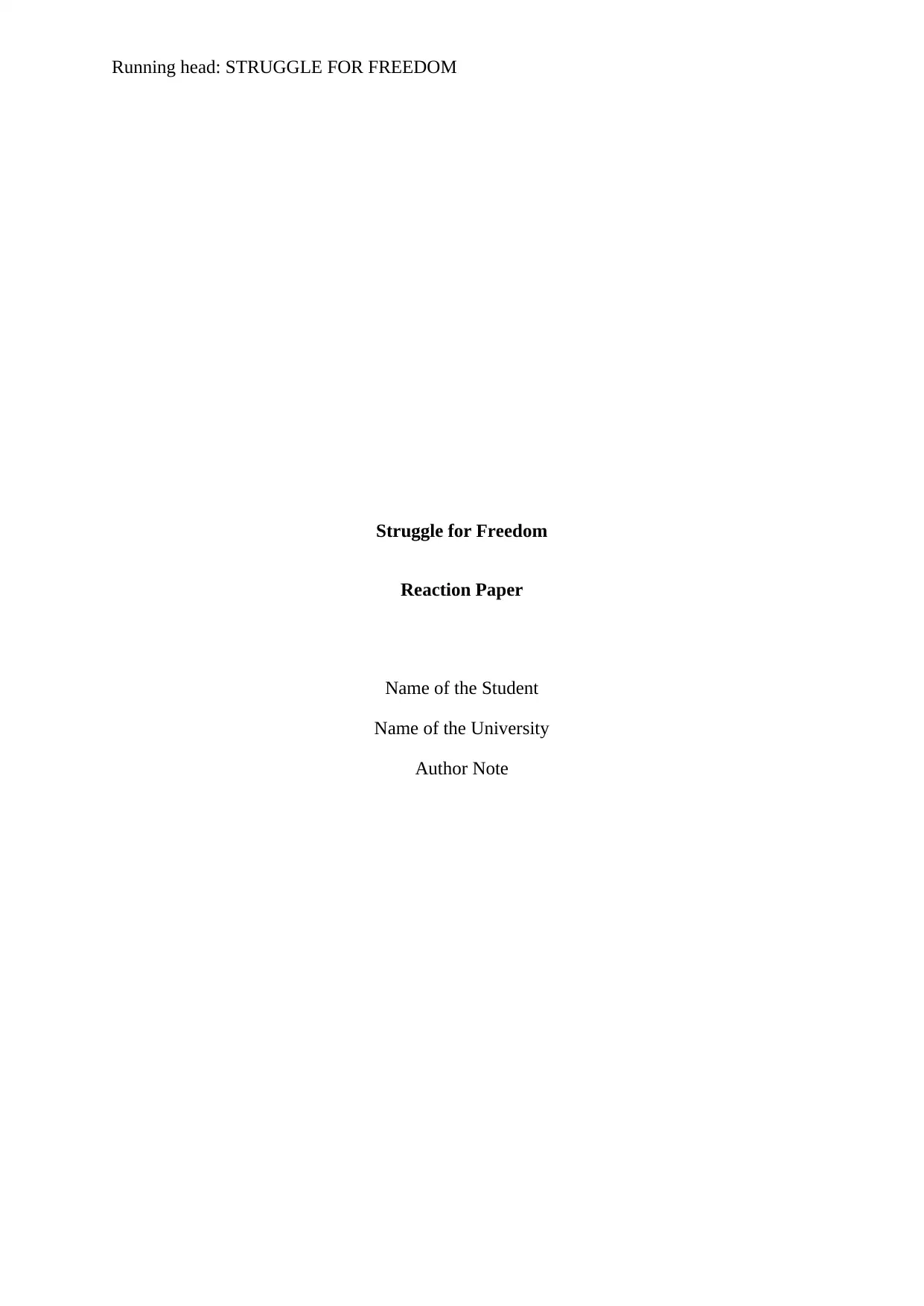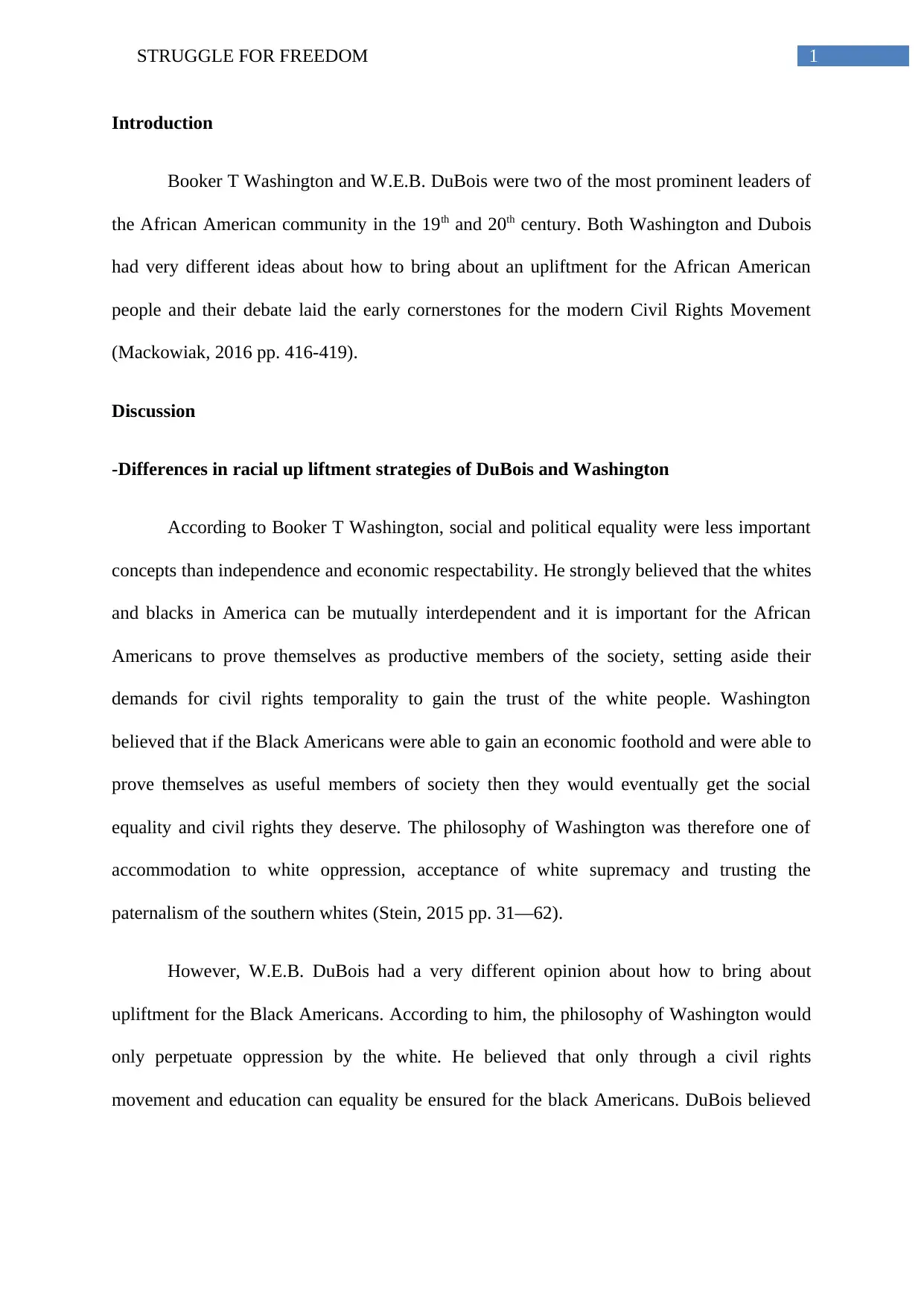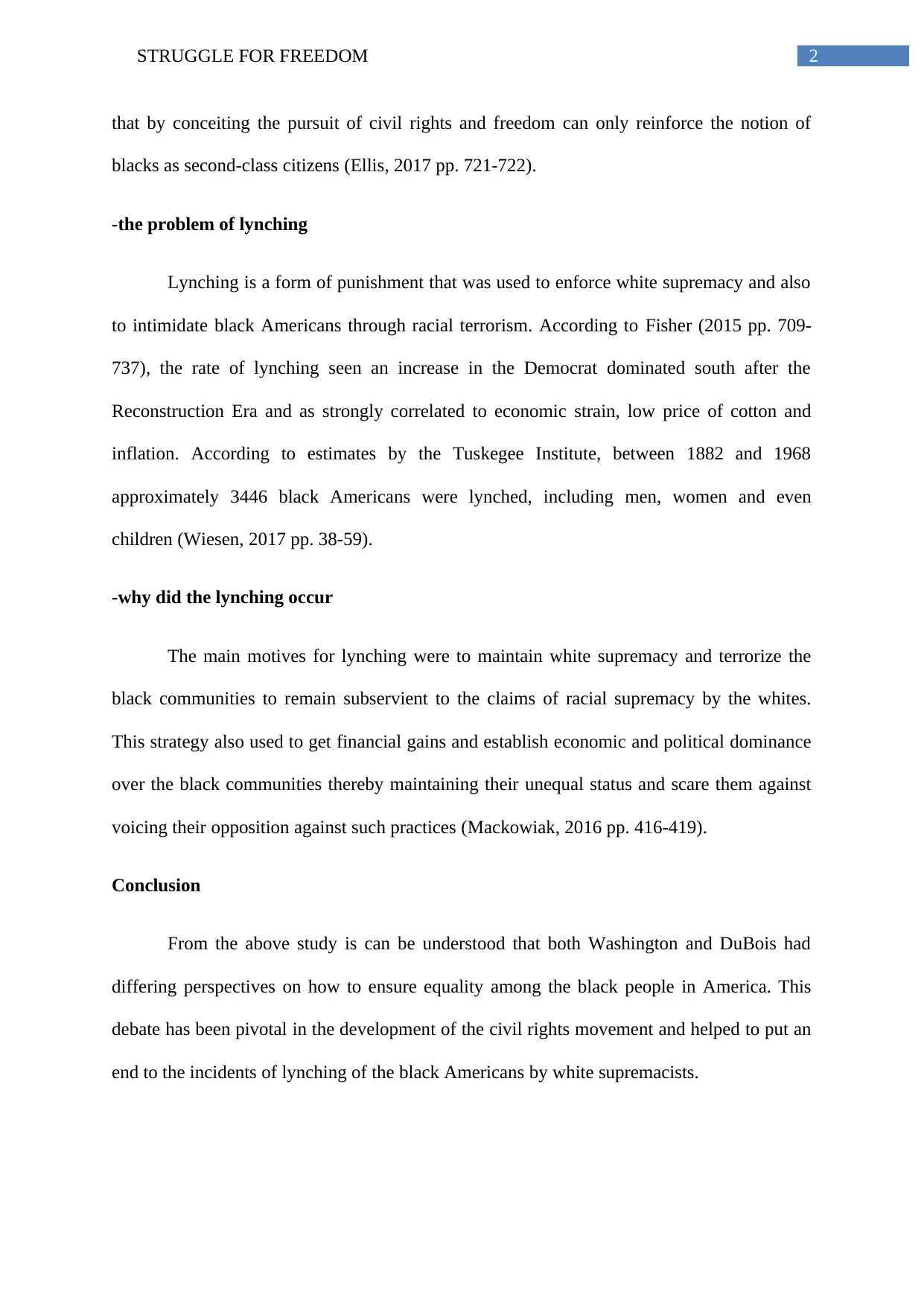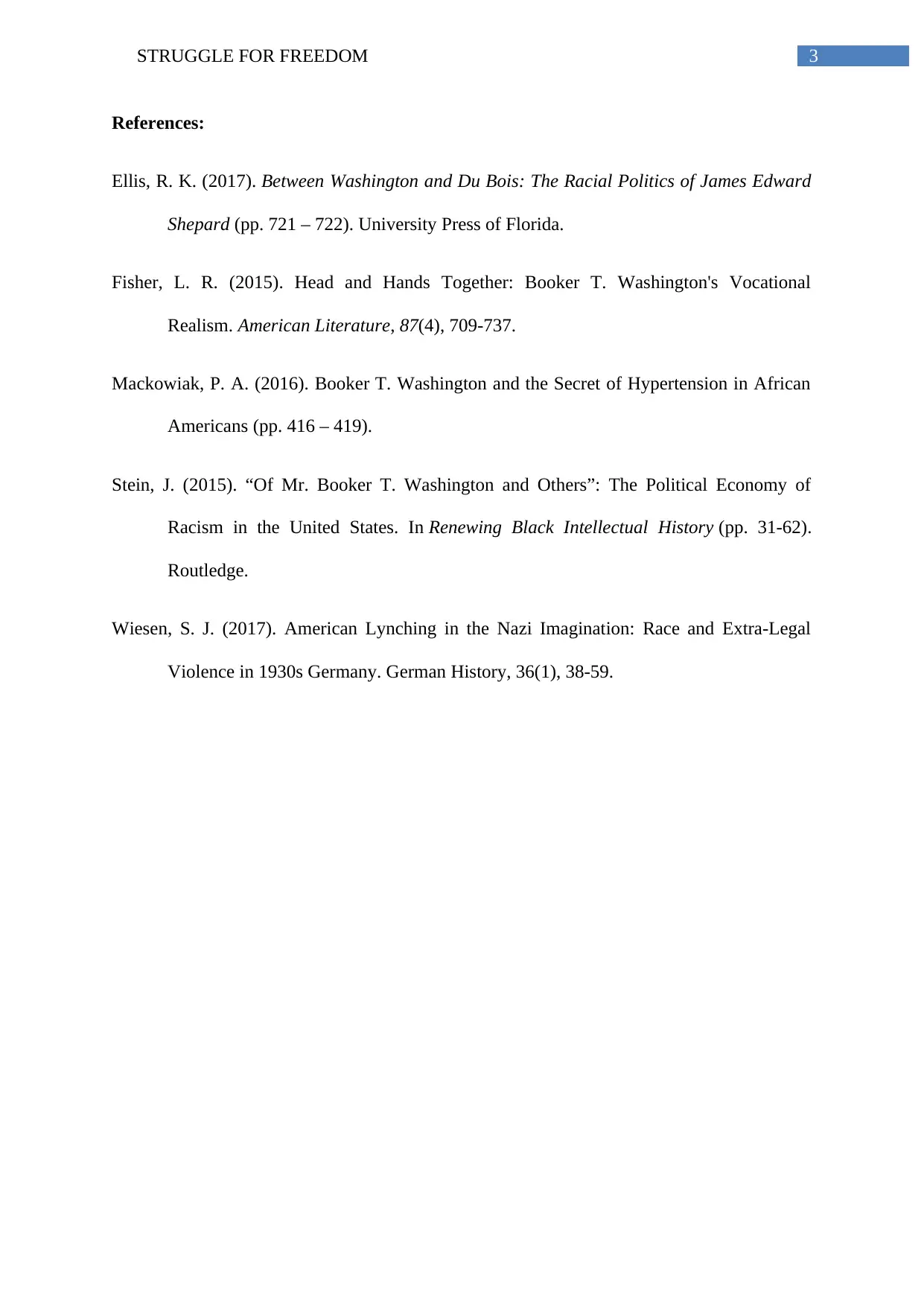Reaction Paper on the Struggle for Freedom: Perspectives & Analysis
VerifiedAdded on 2023/04/25
|4
|752
|363
Essay
AI Summary
This essay presents a reaction to the contrasting ideologies of Booker T. Washington and W.E.B. DuBois, two prominent figures in the African American community during the 19th and 20th centuries, regarding strategies for racial upliftment. Washington advocated for economic independence and gradual social integration, emphasizing the importance of proving Black Americans as productive members of society before demanding civil rights. Conversely, DuBois argued for immediate civil rights and education, believing that Washington's approach would perpetuate racial oppression. The essay also discusses the problem of lynching, its motives rooted in maintaining white supremacy, and terrorizing Black communities. Ultimately, the analysis underscores how the debate between Washington and DuBois laid the foundation for the modern Civil Rights Movement and contributed to the fight against racial violence. Desklib offers a wide range of resources, including past papers and solved assignments, to support students in their academic endeavors.
1 out of 4








![[object Object]](/_next/static/media/star-bottom.7253800d.svg)